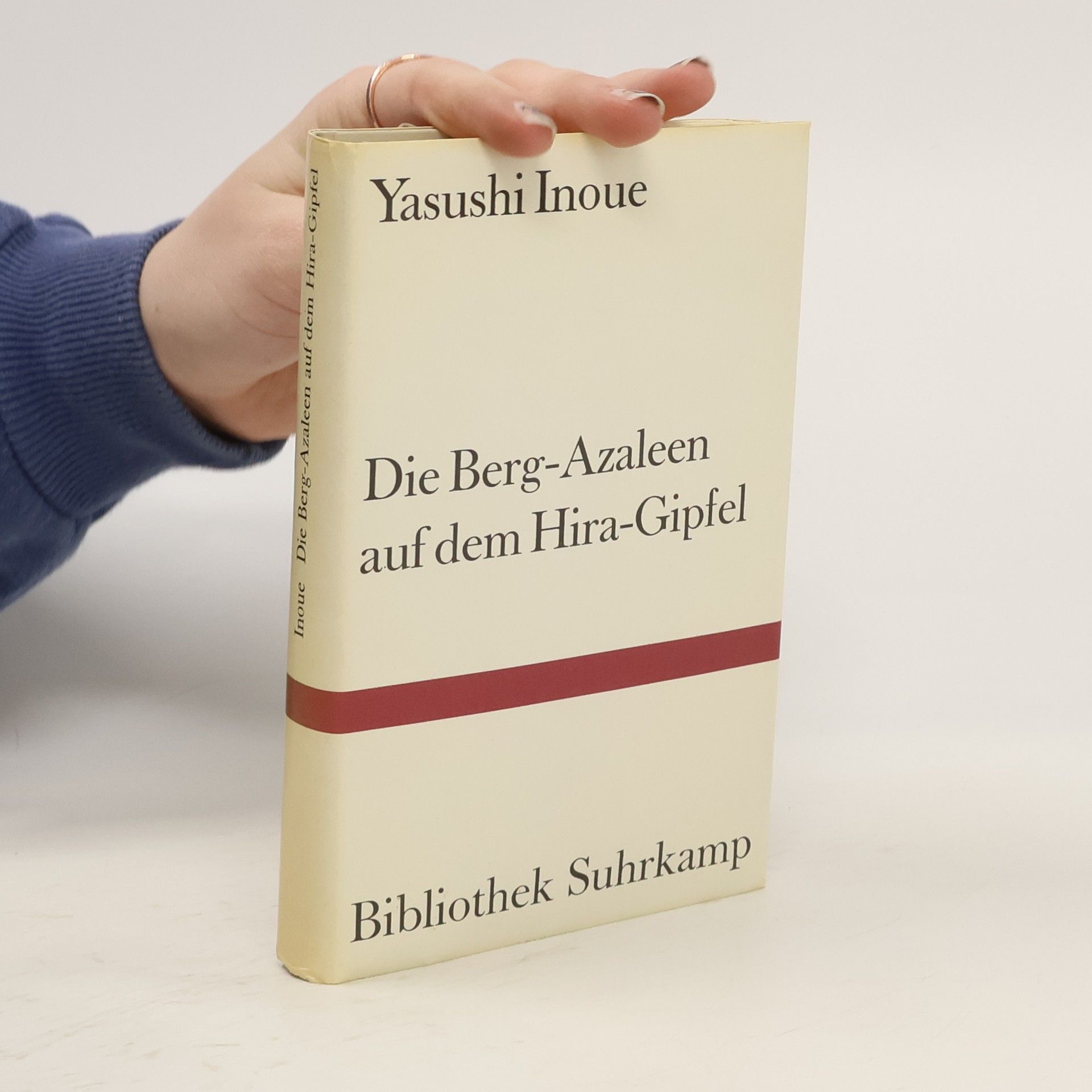“Delicate and powerful... a haunting, sensitive meditation on memory as well as a wonderful introduction to a master sorely underappreciated in the West. . . timeless, elegiac, and masterful” – Shelf Awareness The story of a love affair and its tragic consequences, told through the letters of three women — a contemporary translation of a Modern classic “A Japanese master. . . Inoue's humane and searching world view is there to be explored” – The Spectator Love, death, truth and loneliness are all intertwined in this masterpiece from one of Japan’s greatest writers. A tragedy in three letters: the masterpiece of one of Japan’s greatest writers A lover, her daughter and the abandoned wife: three letters by three women tell the story of a love affair’s tragic consequences. First Shoko, who finds out about the infidelity through reading her mother’s diary; then Midori, the wife who has always known but never told; and finally the beautiful Saiko, the woman who has betrayed her best friend.Yasushi Inoue’s poised, unsentimental novella is a powerful tale with universal resonance. Written from three different points of view, the story explores the impact of forbidden passion. Don’t miss this stunning new edition of a celebrated translation of a Modern classic — the best known and most accomplished novel by the beloved Japanese author of the acclaimed novella Bullfight.
Yasushi Inoue Libros
Yasushi Inoue fue un escritor japonés cuya diversa obra abarcó poesía, ensayos, cuentos y novelas. Es célebre por su profunda ficción histórica, a menudo ambientada en el antiguo Japón y el continente asiático. Más allá de estas serias narrativas históricas, Inoue también escribió obras semi-autobiográficas ricas en humor, patetismo y sabiduría. Estas historias más íntimas ofrecen una perspectiva reveladora sobre el Japón de principios a mediados del siglo XX, capturando la esencia de las propias experiencias vitales del autor.

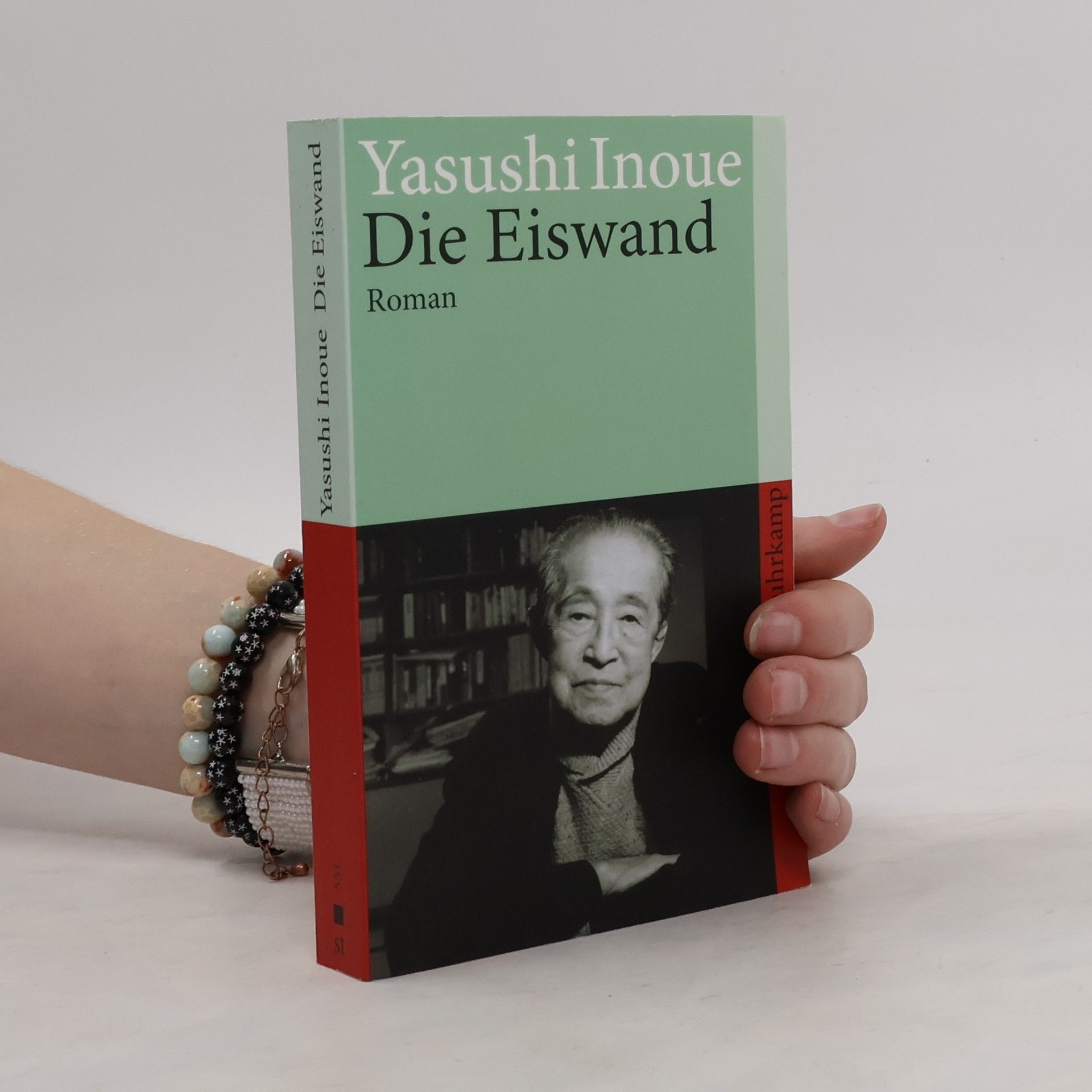
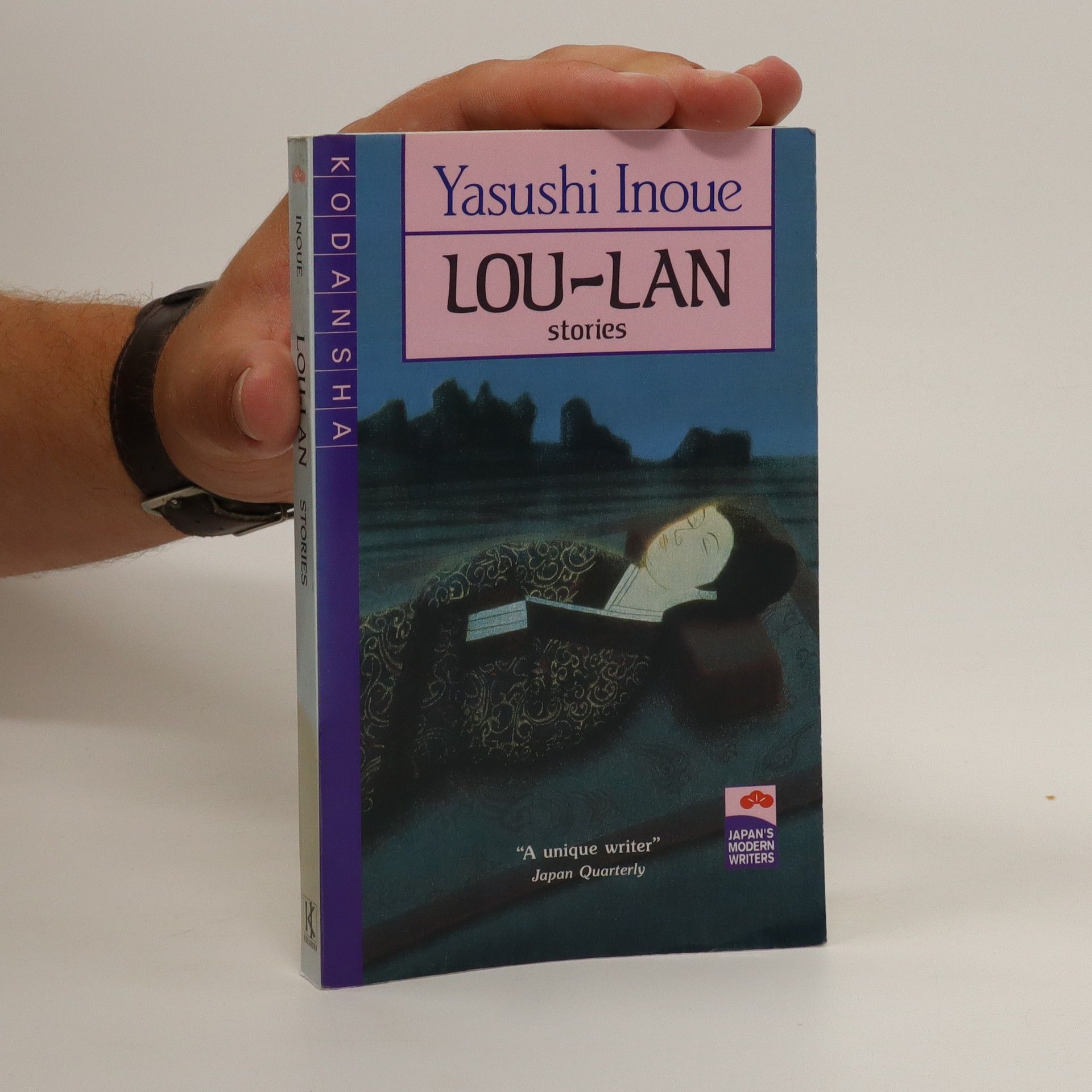
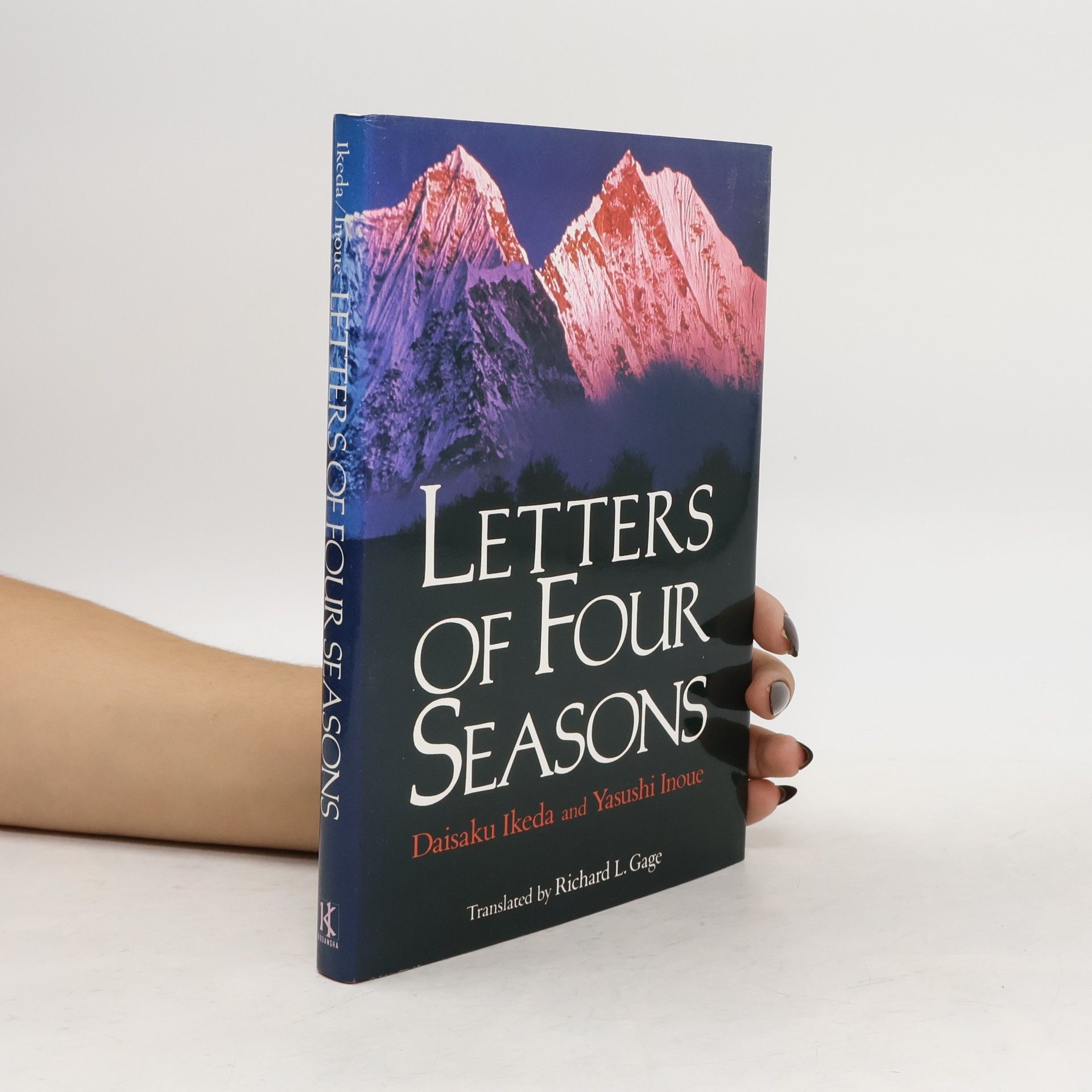

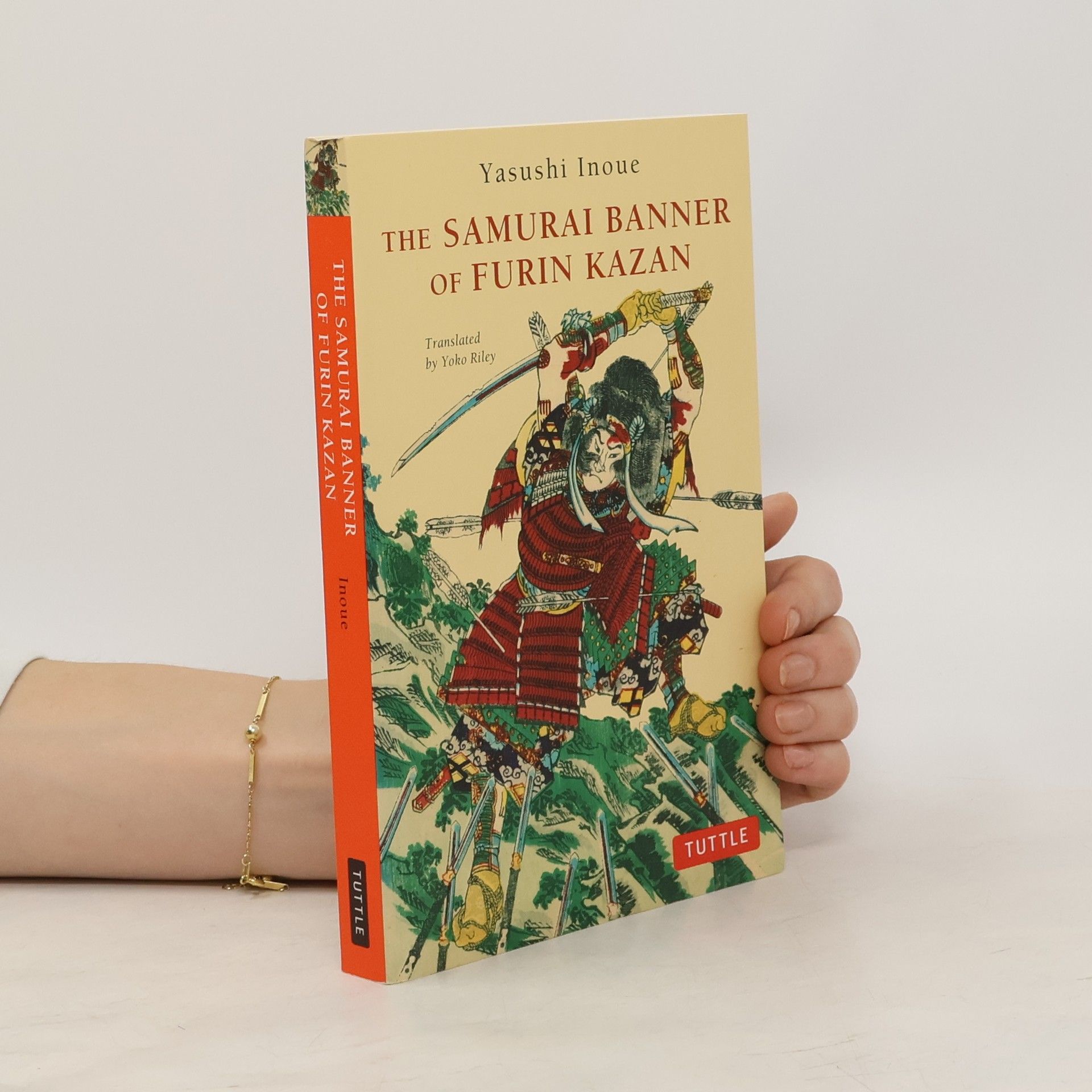
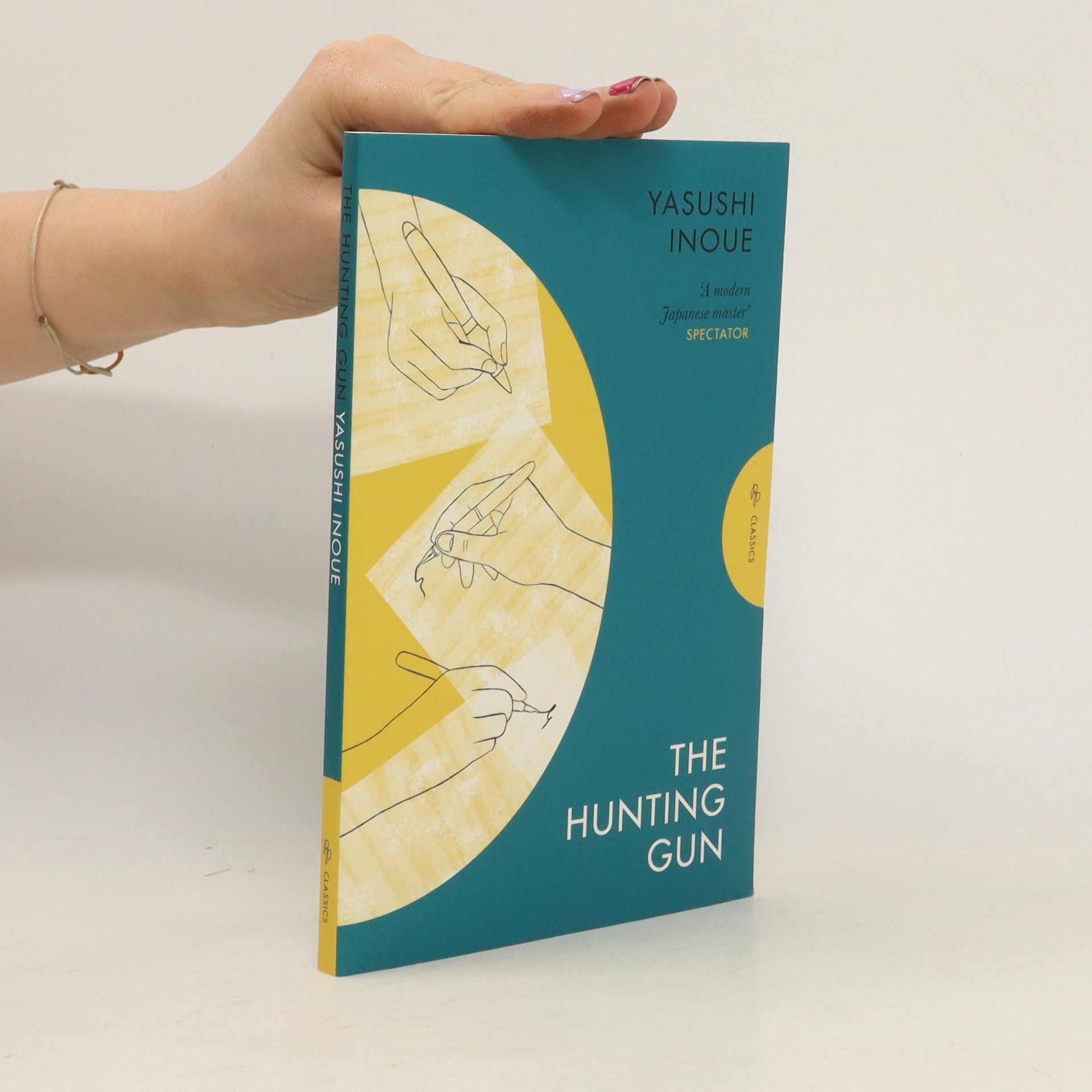
The Samurai Banner of Furin Kazan
- 209 páginas
- 8 horas de lectura
Originally published in Japanese in 1959, this classic novel by Yasushi Inoue takes place during the Japanese Warring Era (1467-1573)-a time when Japan was ruled by three young powerful Takeda Shingen, Iwagawa Yoshimoto, and Hojo Ujiyasu. The story focuses on Takeda Shingen and his one-eyed, crippled strategist, Yamamoto Kansuke. The brilliant strategies of Kansuke, inspired by his passion for war and his admiration for his enemies' war tactics, are beautifully expressed throughout this book.
Tun-Huang
- 240 páginas
- 9 horas de lectura
More than a thousand years ago, an extraordinary trove of early Buddhist sutras and other scriptures was secreted away in caves near the Silk Road city of Tun-huang. But who hid this magnificent treasure and why? In Tun-huang, the great modern Japanese novelist Yasushi Inoue tells the story of Chao Hsing-te, a young Chinese man whose accidental failure to take the all-important exam that will qualify him as a high government official leads to a chance encounter that draws him farther and farther into the wild and contested lands west of the Chinese Empire. Here he finds love, distinguishes himself in battle, and ultimately devotes himself to the strange task of depositing the scrolls in the caves where, many centuries later, they will be rediscovered. A book of magically vivid scenes, fierce passions, and astonishing adventures, Tun-huang is also a profound and stirring meditation on the mystery of history and the hidden presence of the past.
From Japan's master of historical fiction, winner of its highest cultural award, six stories in quest of the hidden treasures of Asia's past. The six stories, translated by two outstanding translators from the Japanese, exemplify Inoue's skill at both evoking an historical atmosphere and telling a gripping tale, and they will convey to a Western reader exactly why Inoue was one of the most popular writers in Japan today. The majority of the stories may be generally classified as "historical fiction," but, more precisely, they are extremely well-researched forays into remote geographical areas and little-known periods of history. The title story, "Lou-lan," recounts the turbulent history and final disappearance of an ancient city in Central Asia. "The Sage" and "Princess Yung-t'ai's Necklace" also recreate the tempestuous past of continental Asia. The remaining three stories--"The Opaline Cup," "Passage to Fudaraku," and "The Rhododendrons"--are set in Japan. The first of these is about a pair of cups that were treasured by an ancient king and are brought together after being separated for over a thousand years. The second is a narrative centering around a custom that arose in a remote Buddhist temple, whereby the abbot was cast adrift in a boat to die at sea. And the third is a masterly characterization of an old scholar reminiscing about his life.
Die Gebirgspartie, der Roman seinen ist die steil aufragende Ostwand des Hidaka-Gebirgs. Sie wird zum Schicksal zweier Freunde, die beide an dieselbe, verheiratete Frau gebunden sind. Sie gehen an der Eiswand zugrunde.
Shirobamba
- 236 páginas
- 9 horas de lectura
Yasushi Inoue wurde am 6. Mai 1907 in Asahikawa, Hokkaido, geboren und starb am 29. Januar 1991 in Tokio. Mit sechs Jahren zog er zu seiner Großmutter, einer ehemaligen Geisha, nach Shizuoka und besuchte dort die Mittelschule. 1926 wechselte er auf die höhere Schule, wo er Judo trainierte und Gedichte schrieb. Er brach mit der Familientradition, die seine Vorfahren zu Ärzten gemacht hatte, und studierte zunächst Jura, später Kunstgeschichte, und schloss 1936 ab. Nach seinem Examen veröffentlichte er Gedichte und Kurzgeschichten, arbeitete jedoch zunächst als Journalist für die Mainichi-shimbun in Osaka. Um 1950 etablierte er sich als freier Schriftsteller. Inoue wird als großer Meister der japanischen Gegenwartsliteratur geschätzt und gilt als Botschafter zwischen den Kulturen. Er ist ein verständnisvoller Förderer der Künste in Japan und verkörpert eine traditionsbewusste, zugleich offene Lebensweise. Seine Herzlichkeit, Würde und Aufrichtigkeit helfen, jede Distanz zu überwinden, und machen ihn zu einem Vorbild für viele.
Die Berg-Azaleen auf dem Hira-Gipfel
Erzählungen
Yasushi Inoue, der 1907 geborene Meister der japanischen Literatur, ausgezeichnet mit den großen Preisen seines Landes, gehört als Romancier seit langem zur Literatur der Bibliothek Suhrkamp. Vor allem Das Jagdgewehr , diese Geschichte einer Liebe, die in Wirklichkeit die Geschichte der Einsamkeit ist, wurde weltweit berühmt. Dieser Band versammelt die drei autobiographischen Erzählungen Unter den Blüten, Der Glanz des Mondes, Die Schneedecke sowie die Titelerzählung Die Berg-Azaleen auf dem Hira-Gipfel. Dort ist ein älterer Gelehrter, der in rücksichtsloser Passion an einem Buch über das Arteriensystem der Japaner schreibt, eines häuslichen Disputs wegen in den ihm vertrauten „Gasthof zum Heiligen Berg“ am Fuß des Berges Hira entflohen und sinnt über sein Leben nach. Als Student hatte er zum ersten Mal in diesem Gasthof unterhalb der auf dem Hira blühenden Azaleen übernachtet, um – nach Zen-Übungen körperlich wie geistig erschöpft und verzweifelt – am nächsten Morgen Selbstmord zu begehen. Doch die nächtlichen Schreie des Bergvogels hatten ihn zu neuem Leben erwachen lassen. Diesmal sind die Umstände anders. Bemüht, sein Werk im Wettlauf mit dem Tode zu vollenden, und doch wissend, daß ihm dies nicht gelingt, erfreut sich Miike Shuntarô während einer Bootsfahrt auf dem See, zu der ihn die siebzehnjährige Atsuko eingeladen hat, der einzigartig schönen Landschaft. Der Berg Hira ragt erhaben zum Himmel empor …


